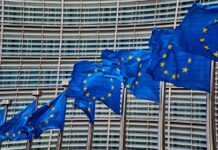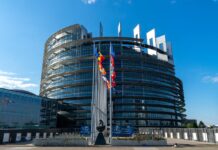In more normal times, the issue of possible applications of artificial intelligence in the medical field was one of those more likely to dominate the European Commission’s agenda. With the needs and urgency of the current situation, the sector has become even more relevant, and the use of AI in the management of the crisis is changing in many areas. How has it been used so far and how can it be further exploited? How can it be used effectively without undermining the protection of citizens’ fundamental rights and freedom?
The question of the trade-off between the protection of citizens’ rights and the need to impose restrictive measures in order to ensure their protection in emergency situations has always been one of the most important points in all law manuals. Measures such as derogations to the right to privacy, non-discrimination and freedom of the movement of an individual in the name of an urgency are some of the cases we are now having to deal with. However, the use of AI where the crisis that we are experiencing in Europe is concerned, could be a resource resulting in positive effects in different areas, making it potentially more efficient and secure.
In the healthcare field during the Covid-19 emergency, the use of AI has seen numerous applications, such as real-time monitoring of body temperature, detection of typical traits of infection from lung CT images, and disinfection of hospital environments. An important role is being played in research activities for a potential COVID-19 vaccine. In this case, artificial intelligence technology would decisively contribute to reducing the time needed to detect the virus molecular structures, even if clinical trial times would remain unchanged. However, the development of vaccines and drugs in response to public health emergencies also presents particular legal aspects and ethical challenges as in the vast majority of cases, health data falls under the category of sensitive data and is therefore subject to rigorous protection rules. However, the GDPR provides for a special regime for the processing of personal data during an epidemic emergency reserved for the relevant health authorities and employers in accordance with national legislation. For example, when processing is necessary for reasons of clear public interest in the public health sector, the consent of individuals is not required.
From a logistical point of view, AI can be used to track the spread of the disease, creating links between the various unstructured textual data systems made available, so as to be able to predict the number of potential new cases per area and to carry out assessments, risk calculations and optimisation regarding control measures for the management of new emergencies. And again, in a changing work environment, where many professions have adapted to working from home, AI can be used to monitor workers’ activities in their home environment.
On the other hand, there is a growing debate on applications relating to the control and security of citizens, in order to limit their behaviour and movements, but also to predict potential developments in the areas where the number of infections is likely to spread. In a normal context, these would represent serious restrictions on personal freedom – restrictions ranging from the impossibility of moving about freely to violations of privacy. From China to Europe, via Russia, AI-based systems are being used, such as the use of facial recognition to track people who do not wear protective masks in public, fever detection systems, as well as the processing of data collected on digital platforms and mobile networks to track citizens’ movements. And again, the use of drones to monitor the presence of gatherings, violations of social distancing measures and, more generally, to ensure continuous territorial monitoring.
Many organisations, both private and public, are currently working on how to develop further applications that can provide accessible tools to anticipate further developments of the virus, and the crisis resulting from its global spread. However, the debate on citizens’ rights remains open. Can these rights be sacrificed for the sake of the needs and urgency of the current crisis?






